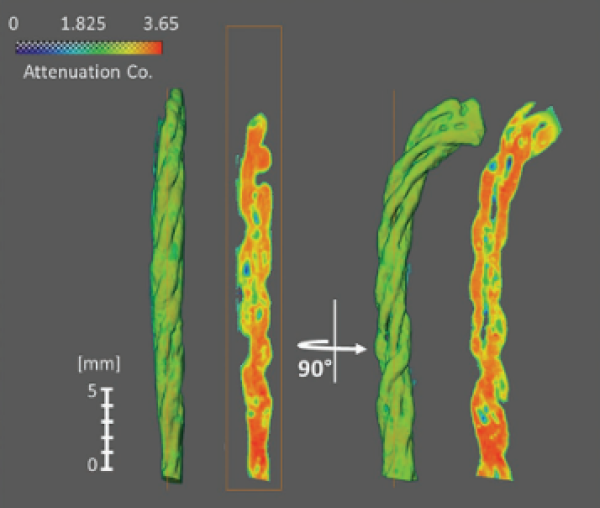Controlled Liquid Transport in Biocatalytic Yarn
January 4, 2022

Neutron tomography images of chitosan-coated cellulosic cotton yarn after gravity-assisted wicking experiments. For two orientations the overall yarn tomography is shown (left) with a cross-section (right). Red indicates high water concentration while blue/green indicates less water.
Scientific Achievement
Visualization of liquid transport through biocatalytic yarn revealed a constrained wicking mechanism whereby the liquid is confined to follow individual strands of the yarn.
Significance and Impact
The ability to control liquid transport through a yarn with strands coated with enzyme catalyst enables more rapid and more efficient biocatalytic performance.
Research Details
- Strands of cellulosic yarn were coated with chitosan and the enzyme catalase, immobilizing the enzyme.
- The yarn was used as a flow-through reactor for efficiently dissociating hydrogen peroxide giving oxygen and water.
- Liquid transport through the yarn and liquid spatial distribution within the yarn were investigated by in-situ neutron radiography and neutron computed tomography (CT).
“Biocatalytic Yarn for Peroxide Decomposition with Controlled Liquid Transport”
Yue Yuan, Yuxuan Zhang, Hassina Bilheux, and Sonja Salmon
Advanced Materials Interfaces 8, 2002104 (2021). DOI: https://doi.org/10.1002/admi.202002104




